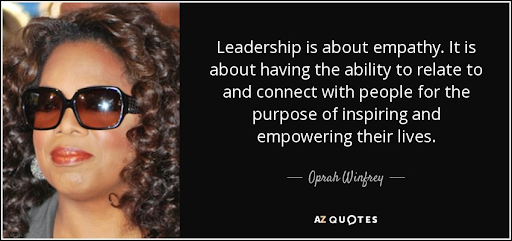Recently I changed my career and was looking for a job, I went through a lot of interviews. This was my first interview experience and my proven sales skill was great. Here I summarize it in order to help those who are just starting this path, to correctly build, first of all, their psychology.
This blog post will help you look at the interview process from the perspective of a buyer and a seller, write a competent resume and understand how to answer seemingly formulaic behavioral questions. It will be useful to those who:
- Changing careers
- First interviews
- Moving from academy to industry
- From your business to hired work
- Who is still bad at passing the non-technical stages of the interview (all these soft skills, cultural fit, etc.)
My blog posts cover the AI and machine learning interview processes, but the first parts will work for almost any field. In part 1 I will talk about the interview through the eyes of the seller, in part 2 through the eyes of the buyer. I will write about the technical stages and how to prepare for them in part 3. How to create a job to your liking, without counting on "uncle" and without going through the classic interview scheme, in part 4. Drove.
* Scope: transition: two decrees in a row - MedTech - industry. Field: machine learning / computer vision. Background: Artist, PhD in Physics. Location: planet Earth (pandemic has expanded the boundaries)
Part 1. Interview as a salesperson
The company buys your time and labor. You are selling your experience and skills. You are a salesperson. They are the buyer.
The first step is to understand what the buyer wants to buy. Some of this is indicated in the vacancy. But far from everything, and far from everything there is true. However, let's start with her. How to find out the wishes of the buyer more precisely, I will tell you further.
Step one. Preparing a resume

Michelle Obama Sells A Garage (But This Is Not Certain)
In summary, you are selling your experience and skills to a buyer. The skills are indicated in the vacancy, everything that you have needs to be listed in the resume header, literally and without abbreviations. Often the resume is parsed by automated programs, and if you did not specify the key skills, the prize will go to the competitor. Years of experience are also better indicated in the header. All the most important should be immediately visible.
How to sell experience
It is important to understand that the buyer wants results from you. He doesn't care what you did there, decided, considered, implemented. It is important for him what you have done, done, finished, what you have achieved. There must be something that is broadcast to his company so that he can clearly imagine how you will benefit his business with similar achievements. Do not write what you did, write what you achieved. Write down how the stakeholders benefited.
Remove the excess. Imagine that all of your rich life and professional experience is a garage full of valuable junk for you. But the buyer only needs a chair from there. This chair needs to be taken out of the garage and placed beautifully.
If you don't have enough experience, download the resource. Learn, take your skills to the next level, collect achievements, build GitHub, participate in open-source projects, make a free application ... It's pumping. Sales are important when there is a chair, if there is no chair, you need to make it first.
Career change
Especially for those moving out of academia or changing careers. It's great that in addition to the chair you need, you also have lasers, articles, paintings, a sofa and a TV in your garage. Understand, the buyer came for a chair. Fuck, take out the chair!

Ostap Bender takes out a chair
Downshift
If you want to make a downshift, but before that you were a director, a physicist, an artist or just a mother, this is irrelevant. Leave it in the garage. If you have changed the field, and now apply for a starting position after the CEO - do not invent how to turn your rich experience in this way. Just move the chair out. You have it.
Cut from the resume to juna middle. Reduce experience, management, leadership ... leaving only what the buyer came for. Chair removal example:

We remove the dates so that it is not visible how old you are (ageism exists, although no one will say it directly). We remove experience in another area. We leave pet projects and / or last place of work. We leave kaggle. Removing funding and grants, management and leadership - it scares off in June. We remove articles and awards - no one is interested. Total: PhD + kaggle + pet projects - quite.
Why not include everything? Put yourself in the shoes of the buyer. You came to buy a chair in a mini-cooper. And there is a garage. There is a chair there, but firstly it got lost somewhere in the garage, and secondly, they are still trying to shove you in the sofa and the TV into the bargain. And it doesn't fit you, well, at least how. You just buy a chair without unnecessary junk from a competitor.
If you have a long experience of the signor in another related specialty, but some technical fragments are lacking in a new business, it is quite logical that you will go to the juna mill to improve your skills. It is also clear that you will pull them up in 6 months and leave at the first opportunity for your usual role. This is why companies do not take downshifts well and try to avoid even partially overqualified candidates. The solution is simple - shorten your resume and remove everything about the signora if you are applying for June.
What to do with the decree?
Good question. I have two in a row. Decrees are rarely a plus. In the male sphere, they are especially negative, because competitors do not have them by definition. I took the decrees out of the garage. Remove the phrase maternity leave (startups don't particularly like mothers with young children) → change to pet projects. The first decree does not seem to have happened at all, although an astute recruiter will notice the break in dates. If you apply to corporations or non-profit, you can also mention decrees without strong consequences, if to startups, it is better to leave them in the garage and forget about them.
If you are a CEO / CTO / Director and are reading this - write in the comments how you would perceive the candidates-mothers immediately after the decree (s), and therefore with small children, as well as the country, sphere and size of the company. You can anonymously, the main thing is honest.
Step two. We research vacancies and look for referrals
Looking for jobs on Linkedin, hh, indeed and related sites. If you like the vacancy:
- We are looking for a friend who works in this company, we learn from him about the role and culture of the company everything that he will be ready to tell you, at the same time we forward the resume through him / her.
- If there are no acquaintances, we recruit a company on Linkedin - we look at people, and add to contacts those who work in the team you need. It works. In one large company, I added everyone, and they wrote to me: “We have a suitable vacancy here, if interested, I can refer you” (suddenly, yes)
- If absolutely zero, you can carefully ask unfamiliar contacts on Linkedin to forward your resume. Carefully, it is better to choose someone from the other team.
- Otherwise, we write a clear cover letter and send it along with the resume to the hiring manager directly (it is often indicated), Linkedin premium allows
You can also apply cold, of course, but the percentage of passing in this case is about 10% (in my field - computer vision / machine learning). And through referrals - about 50%. Draw conclusions and spend your time wisely.
Step three. Interview with HR / Hiring manager
Hooray! You have passed the first filter - the most random one.

Let's get ready:
- We go to the company's website, see what they do. We read their news. If they have blog posts, that's great, so we scroll through and write out important technology keywords and unfamiliar terms. This will come in handy when preparing for a technical interview.
- We understand what the company makes a profit on. We are considering how you are going to increase this profit using the skills specified in the vacancy. If it's not obvious, google and ask friends in this area.
We are now ready to schedule the first interview.
Try to avoid outside recruiters and communicate directly with company representatives. They have a better idea of who they want to hire.
The first question is, tell us about yourself. This is where your preparation is needed. No need to drag out your entire garage, take out the CHAIR, but take it out beautifully! Weave your experience into the company's activities, show how you did projects similar to those that can bring the company profit, concentrate on achievements that will be interesting to them, be short and laconic. It's hard to improvise, so consider taking out the chair ahead of time while doing company research. It shows interest in the company you've done your homework.
Finding out the shade of the chair
Your first interview as a salesperson is time to figure out exactly what the customer wants. How do you know what he wants? Let's ask!
After telling about yourself, say that you have studied the activities of the company and the vacancy, but you still have questions. Can I ask them? Take the interview into your own hands, lead it, and don't be led. Be sure to ask: what is the ideal candidate for this role, why did you open this vacancy, what do you expect from this role. The ideal candidate will give you a chair shade, and expectations will give you what you will be selling.
Selling is an emotional thing. You have to sell the buyer a brave new world in which his problems will be solved and he will be happy. Therefore, it is necessary to understand these problems and expectations. This is necessary when answering the following questions, so find out first.
Be brief. Do not go overboard, keep within 10 minutes, and be sure to leave a lot of time for the HR / Hiring manager's questions, because they should interview you according to the script :). Pass the baton with the words: “Thank you very much, now a lot has become clear for me. Perhaps you would like to ask me questions now? "
At the end, ask questions like a buyer (more on this in the second part). Be sure to check the tech stack and the names of everyone on the team. This will come in handy for technical interviews and in part four. The buyer will ask you what he himself knows / what he is interested in, and this is often seen from the profile, projects, speeches and blog posts.
Step four. Behavioral Issues
Now that you are fully armed, behavioral questions and asking for experience begin. This is not just a standard: “What is your strength / weakness”, “Describe the conflict situation” and “Who do you see yourself in 5 years”. These are sales. Often these same questions are brought up for the final interview with top managers, but they also happen at the initial stage. This is where you need the information about the role and expectations that you found out. Use these questions to weave your qualities into company expectations and create a beautiful picture of a brighter future. Choose those qualities that best meet expectations. Do not be unfounded - support all statements with examples from your life. Don't be a robot - improvise. Creativity and spontaneity will not hurt you.
For example, when I asked about the role and the ideal candidate, one recruiter told me that they need to think through strategy and planning. Their ideal candidate will be able to take direction and lead the project.
When I handed the baton back to him, he asked: "What is my strong point." I said that I was thinking about the strategy well. [example] Thanks to this, I was able to leave the competition and receive grants for my projects, [result] I won over half a million dollars in total. I plan well, [example, proof] because the RnD projects that I have been leading usually have a duration of 2 years. Strategic thinking in this helps both to manage the projects themselves and to plan them. He liked it, because it matched the ideal candidate. Why did I choose these two qualities, and not my other strengths (creativity, networking, problem solving ...)? Because I asked about it in advance. Take the interview into your own hands!
The question about weakness is also selling. If you are applying for Tesla, it is quite appropriate to say that the weakness is that you are a workaholic, but you regulate this with sports to avoid burnout. And in a large corporation with slow processes, it's safe to burn perfectionism into weakness. Be sure to tell how you manage your weakness, what you are doing to improve the situation.
An important property that you sell is your sincere motivation to work for this company. Don't forget about him! Sales begin with the question "tell us about yourself", and I prepare it for each customer in advance. I tie my experience to the company and show interest.
For example, in self driving, I say that I am a physicist and have worked with different optics, like the one used by cars, did 3D reconstruction and invented new lasers that look like lidars. There is a lot of physics in self driving, from data acquisition and optics to Kalman filters. After optics, I mastered computer vision, and therefore my full skill set directly fits perfectly with a company like yours, and I would be very interested.
And to the company, where GANs and applications for artists, I tell them that I am an artist and here is my gallery (tatigabru.com). I really love to create beautiful things. I am not only a creator, but also an engineer by vocation, so I mastered computer vision and now I can combine an inner artist and an engineer. Two passions in one job, is this not happiness.
Different buyers - and completely different stories.
Be sure to ask questions: about the team, tasks, goals, vision and mission - I always spend a lot of time on questions and ask more. This also shows interest in the company and the role.
Salary expectations
You need to know your salary expectations by doing market research and asking friends. Do not believe glassdoor, it is better to ask your friends and acquaintances in this field. If they are not there, ask the acquaintances of your friends. When changing careers, this isn't always obvious, so I ask everyone I know in the new field. Companies often voice forks, but this is not the case everywhere. In Europe and the USA, everything is as you agree. In Russia, the ranges can be huge.
Many people do not like to answer questions about salary in the first interview, fearing to overdo it or to be too cheap. If you have such a situation, and the plug is not indicated, the way out is simple. Be the first to ask.
I often take interviews into my own hands. After telling about myself and moving on to asking about the company, I do the following trick:
- Tell me, what is your range of financial compensation?
- What are your expectations?
- I asked first.
It works.
Interaction
The most important thing when interacting with other people is the emotional component. Nobody hires a mega-smart know-it-all that nobody likes. If you have small gaps in knowledge, it still does not mean anything, because it learns quickly. It is much more important how comfortable it is for people to communicate with you, it is much more difficult to change it. Forging an emotional connection is already halfway through the interview.

Make the interaction with you enjoyable. Test the technique in advance, be a little earlier, do not interrupt, do not argue, be short and concise, explain yourself as clearly and clearly as possible. It doesn't work out right away, but it trains.
Correct yourself.My problem is verbosity. Violation of boundaries, I can be tactless. The presentation of thoughts could also be better. I wrote down my mistakes when crossing boundaries (unsolicited advice, long emails, confused language ...), and posted them on the wall so as not to repeat. She took out a timer and began to detect herself. I recorded myself on video, looked from the side, and saw how I repeat myself, how wordy I am, how I wave my arms, how I speak too long, quickly and too loudly. If this is not pleasant to you, then the buyer will not like it either. We need to change. Looking at yourself from the outside is not the most pleasant experiment, to be honest, but very useful. I began to learn to correct myself. Sign yourself on the phone and improve your communication until you're happy.
Be yourself.Don't be a robot, relax, smile, be open, look the person in the eye, and be sure to turn on empathy. Empathy is the key that opens many doors, perhaps all.

First and last moments.People remember the beginning and end of the conversation the most, not the middle. Therefore, what impression you make at the beginning and how you say goodbye at the end are important. In the beginning, remember to smile, but not forcibly, but sincerely. To leave a good memory of yourself at the end, use your time for questions. The last question should not only be useful to you as a buyer, but also one that the interlocutor is pleased to talk about, which will cause him good emotions. For example, in a technical interview, I asked at the end to talk about a project that he is proud of. And then she listened attentively and admired. The man showed himself in front of the shadow, was able to boast and tell about himself, well, after all. Always end at a pleasant moment for the other person.
Good luck to you! Everything will work out!